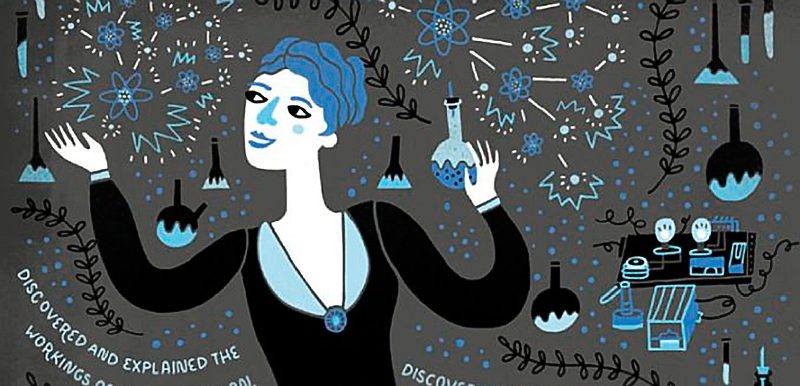WORLD DAY OF GIRLS AND WOMEN IN SCIENCE
To break stereotypes, challenge gender bias and defeat discrimination in science, technology, engineering and mathematics, the United Nations General Assembly proclaimed 11 February in 2016 as the International Day of Women and Girls in Science.
UN Women said in a statement: "Less than 30 percent of researchers worldwide are women. Furthermore, according to studies on the subject, women who do research in science, technology, engineering and mathematics (known by the acronym STEM) have fewer publications, receive lower pay for their research and do not advance as far in their careers as men".
In commemoration of the day, "let us harness the power of innovation and technology as drivers of change, and work together to empower all women and girls in the fields of science," it said.

ARGENTINA BEGAN DRAFTING A NATIONAL PLAN AGAINST GENDER-BASED VIOLENCE
Officials from all provinces will contribute to the development it, through discussion forums to be held across the country.
This was, announced by the Minister of Women, Gender and Diversity, Elizabeth Gomez Alcorta.
For the minister, this mechanism implies "thinking about policies that take into account the multiple social categories that make up identity - gender, socioeconomic situation, age, migration, place of residence, among others - and thus thinking about targeted public policies that take them into account.
After presenting the goals of the ministry, officials reviewed the gender and diversity situation in each district as well as priorities and challenges, and agreed on a timetable of work.
A SINGER'S ADVERTISING CAMPAIGN REOPENS THE DEBATE IN ARGENTINA ON THE ABOLITION OF PROSTITUTION
The posters that covered part of the city of Buenos Aires showed a woman with long, loose hair, half naked, with fishnet stockings and a suggestive look, with a telephone number printed on it.
The image immediately referred to the little pieces of paper that are usually placed in thousands and illegally on the streets to offer sexual services.
Those adds are often removed by citizens themselves because they are associated with exploitation and trafficking.
But this was only the campaign for the new song by Jimena Barón, a popular singer and actress who has thousands of thousands of followers on social networks and who from time to time provokes public controversy.
The media went out to criticize the artist for taking advantage of a social tragedy that affects women for commercial purposes, or to support her for making visible the claim of a sector that promotes the recognition of prostitutes as workers with rights.







